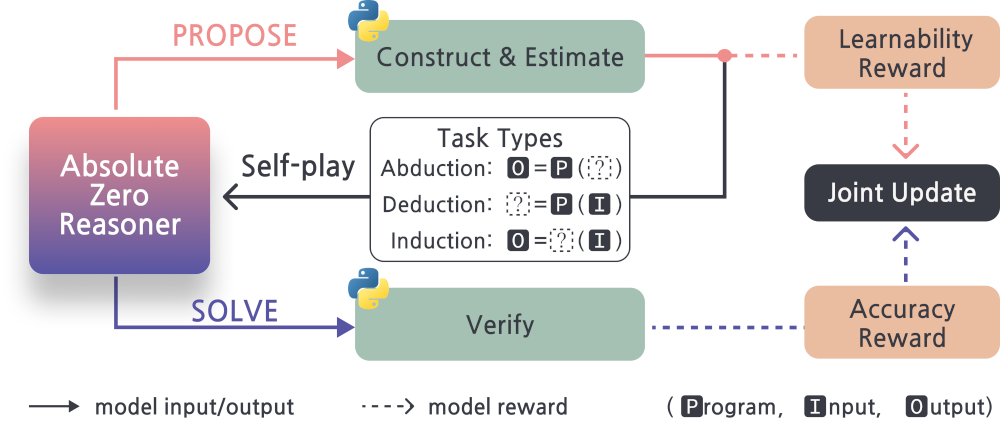Pyragogy Meets FMAL
Paper Details
Title: Foundational Models as Cognitive Tools: A New Paradigm for the Science of Learning
Authors: Ethan Wilcox, Ethan Perez, et al.
Date: May 2025
Link: arXiv:2505.03335
📚 The FMAL Framework
Section titled “📚 The FMAL Framework”FMAL (Foundational Model-Augmented Learning) represents a paradigm shift in the science of learning. Rather than viewing AI models as mere generative tools, FMAL reframes them as cognitive partners capable of:
- Augmenting human reasoning
- Supporting metacognitive development
- Contributing to knowledge construction through reflective interaction
Core Thesis
Section titled “Core Thesis”FMAL positions AI systems not as autonomous agents but as cognitive tools designed to amplify human intelligence, deepen learning outcomes, and enhance reflective capacities.
Key Shifts in Learning Approach
Section titled “Key Shifts in Learning Approach”- From static information delivery to dynamic reasoning support
- From passive AI usage to active epistemic collaboration
- From knowledge transmission to co-construction of understanding
⚙️ Algorithm Flow
Section titled “⚙️ Algorithm Flow”This paper introduces FMAL (Foundational Model-Augmented Learning), a novel paradigm in the science of learning where foundational models (like large language models) are not merely generative tools but are reframed as cognitive partners. These models are capable of augmenting human reasoning, supporting metacognitive development, and contributing to knowledge construction through reflective interaction.
The FMAL framework draws on advances in cognitive science, educational theory, and model alignment to argue that LLMs can serve as extensions of human cognition, scaffolding complex reasoning, offering explanations, generating alternative perspectives, and enabling self-reflective learning loops. Rather than replacing human thinking, these systems augment it by externalizing thought processes, making them inspectable, revisable, and improvable.
It highlights several core shifts:
- From static information delivery to dynamic reasoning support
- From passive AI usage to active epistemic collaboration
- From knowledge transmission to co-construction of understanding
Our approach centers on a repeated iterative process of the following two steps:
-
PROPOSE: The model generates reasoning tasks from abduction, deduction, and induction types. Tasks are validated with Python execution and assigned a learnability reward.
-
SOLVE: The model then attempts to solve these self-generated tasks. Solutions are verified through Python execution, receiving an accuracy reward.
The model continuously improves through both phases using TRR++, creating a self-evolving loop that strengthens reasoning without external training data.

Essential Components
Section titled “Essential Components”| Component | Description |
|---|---|
| Cognitive Extension Framework | AI systems as extensions of human cognitive capabilities |
| Metacognitive Support | Tools that help learners reflect on their own thinking processes |
| Collaborative Knowledge Construction | AI-human partnerships for building understanding |
| Learning Research Platform | Infrastructure for studying AI-augmented learning |
| Adaptive Scaffolding | Dynamic support that adjusts to learner needs |
Principal Research Findings
Section titled “Principal Research Findings”- Complementary Cognition: AI and human thinking strengths can synergize
- Augmented Learning Cycles: New feedback loops enhance knowledge acquisition
- Interaction Design Principles: Guidelines for effective AI-human learning interfaces
- Cognitive Load Redistribution: Offloading certain cognitive tasks to AI systems
- Emergent Learning Properties: Novel learning phenomena arising from collaboration
- New Assessment Metrics: Frameworks for evaluating augmented learning
🔄 Alignment: FMAL and Pyragogy
Section titled “🔄 Alignment: FMAL and Pyragogy”The table below demonstrates how FMAL concepts map to Pyragogy implementations:
| FMAL Concept | Pyragogy Implementation |
|---|---|
| LLMs as Cognitive Tools | Pyria as Epistemic Peer |
| Adaptive Scaffolding | Learning Rhythm Assistant |
| Reflective Co-creation | Cognitive Diary + MCP Loop |
| Metacognition and Agency | Co-Creation Formula + Manifesto Principles 4, 8 |
| Ethics, Transparency, Explainability | Ethical Protocol + Principles 2, 5, 6 |
| New Learning Metrics | 4D Assessment Matrix |
| Cognitive Extension | MCP-Core Agents as Extensions |
| Learning Research Platform | Pyragogy Ecosystem |
| Knowledge Co-Construction | Collaborative Authoring Frameworks |
| Cognitive Load Redistribution | AI Semantic Agents + Human Creative Synthesis |
🌀 Our Implementation Approach
Section titled “🌀 Our Implementation Approach”The FMAL paradigm aligns perfectly with Pyragogy’s mission. While FMAL introduces a theoretical framework, Pyragogy actively implements these concepts through:
Proposed Initiative: Pyragogy x FMAL Lab
Section titled “Proposed Initiative: Pyragogy x FMAL Lab”We’re developing an experimental lab within the Pyragogy ecosystem where AI agents:
- Propose cognitive tasks based on FMAL’s taxonomy (induction, deduction, abduction)
- Engage in AZR-style self-play and reflection
- Collaborate with human learners through structured diaries and feedback loops
We are preparing to share this implementation with the FMAL paper authors to explore potential collaboration.
🌐 External Resources & AZR Ecosystem
Section titled “🌐 External Resources & AZR Ecosystem”- 📜 Paper: arXiv:2505.03335 – Foundational Models as Cognitive Tools
- 🧠 Project Page: andrewzh112.github.io/absolute-zero-reasoner
- 💻 Code (GitHub): LeapLabTHU / Absolute-Zero-Reasoner
- 🤗 Models (HuggingFace): AZR Collection
- 📊 W&B Logs: wandb.ai/AbsoluteZeroReasoner
✨ Contribute to FMAL-Pyragogy Research
Section titled “✨ Contribute to FMAL-Pyragogy Research”Research Opportunities
Section titled “Research Opportunities”- Design and conduct FMAL experiments
- Study metacognitive patterns in AI-human learning
- Measure collaboration outcomes using new metrics
📬 Connecting With FMAL Authors
Section titled “📬 Connecting With FMAL Authors”We’re preparing outreach to the FMAL paper authors to:
- Share our implementations within the Pyragogy ecosystem
- Explore collaboration opportunities
- Contribute use cases to the AZR framework
If you’re a researcher interested in FMAL applications in human-AI learning systems, connect with us:
- Email: info@pyragogy.org
“The threshold is not a wall: it’s an invitation. Cognitive co-creation has already begun.”
— Pyragogy, May 2025